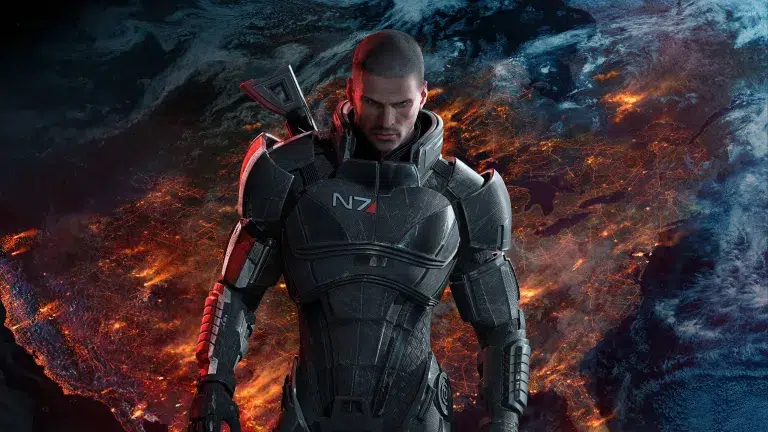“Mass Effect,” a celebrated space-opera role-playing game franchise developed by BioWare, has captivated players worldwide with its immersive narrative and consequential decision-making. As players traverse the galaxy, they encounter morally challenging situations that influence the game’s outcome. This article delves into the intricate ethical dilemmas faced within the “Mass Effect” series, examining how player choices impact the storyline and the underlying philosophical implications they present.

Exploring the Ethics of Player Choices in “Mass Effect” Series
1. Origins of Moral Complexity
The “Mass Effect” series is renowned for its intricately woven narrative, which intricately integrates moral ambiguity into its gameplay. The central protagonist, Commander Shepard, faces numerous dilemmas—ranging from diplomatic negotiations to life-and-death decisions—ultimately shaping the game’s universe. These choices often lack a clear-cut moral compass, forcing players to weigh consequences against personal beliefs.
BioWare crafted a narrative that transcends typical binary morality, fostering a universe where choices aren’t merely black or white but exist within shades of gray. Players encounter scenarios where there’s no definitive ‘right’ or ‘wrong,’ but rather decisions laden with subjective implications. The game’s brilliance lies in empowering players to make these impactful choices, underscoring the complexity of ethical decision-making.
2. The Illusion of Choice: Consequences and Fallout
One of the series’ intriguing facets is its promise of consequence—a player’s actions influencing subsequent events. While “Mass Effect” showcases branching narratives based on decisions, it often leads to an illusion of choice. Some decisions, though impactful within their respective narratives, converge to similar outcomes, limiting the long-term repercussions.
This illusion challenges the idea of player agency, questioning whether the choices made genuinely alter the course of the game or merely offer the illusion of influence. Despite divergent storylines, certain critical junctures ultimately converge, diluting the genuine impact of players’ moral decisions.
3. Utilitarian vs. Deontological Ethics: Decision-Making Paradigms
The “Mass Effect” series confronts players with scenarios embodying conflicting ethical paradigms: utilitarianism versus deontology. Utilitarian choices prioritize the greater good, often demanding sacrifices for the betterment of society. On the contrary, deontological decisions emphasize adherence to moral rules and duties, regardless of potential outcomes.
Players grapple with dilemmas where saving a few might jeopardize the many or upholding personal values contradicts achieving a broader societal benefit. These moral quandaries mirror real-life philosophical debates, compelling players to introspect and adopt varying ethical lenses in their decision-making process.
4. Moral Relativism and Cultural Context
The game incorporates diverse alien cultures, each with its distinct moral codes and societal norms. This amalgamation raises questions about moral relativism—the notion that moral truths are culturally dependent. Players must navigate through these cultural intricacies, respecting and understanding diverse ethical frameworks, challenging the universality of their moral compass.
Moreover, “Mass Effect” confronts players with situations where their moral inclinations might clash with alien perspectives, prompting introspection about the validity of their ethical stance in a multicultural universe.
5. Player Responsibility and Accountability
As players shape the game’s narrative through their choices, the concept of responsibility and accountability emerges. The game places the onus on players to make critical decisions, emphasizing that their actions reverberate throughout the universe.
This highlights the moral weight carried by players, instilling a sense of accountability for the consequences stemming from their choices. The immersive nature of the game ensures that players grapple with the ramifications of their decisions, blurring the lines between virtual and real-world ethical contemplation.
6. Emotional Engagement and Moral Dilemmas
“Mass Effect” adeptly intertwines emotional engagement with moral dilemmas, evoking visceral responses from players. Characters’ well-developed personalities and relationships amplify the impact of moral choices. Emotional investment in these virtual relationships complicates decision-making, as players factor in personal connections alongside ethical considerations.
The game’s ability to provoke emotional responses adds layers of complexity to moral decision-making, compelling players to reconcile their emotional attachments with ethical obligations.
7. Ethical Evolution Across the Trilogy
Across the trilogy, “Mass Effect” evolves its portrayal of ethical complexities. The first installment lays the foundation, introducing players to dilemmas within a confined scope. Subsequent games expand these complexities, presenting weightier moral choices that transcend individual character arcs, impacting the game’s overarching narrative.
This progression mirrors players’ ethical growth, challenging them with increasingly intricate decisions that resonate beyond immediate consequences. It underscores the series’ commitment to evolving ethical quandaries, paralleling the maturation of both the game’s universe and the player’s moral sensibilities.
8. Reflection on Real-World Ethical Applications
The ethical quandaries posed in “Mass Effect” aren’t confined to the game’s universe; they parallel real-world dilemmas. The game serves as a microcosm, urging players to reflect on their ethical foundations and decision-making processes in their lives outside the game.
Players often find parallels between in-game moral choices and real-life situations, prompting introspection about their values, ethical frameworks, and the ramifications of their decisions beyond the gaming realm.
9. The Legacy of Player Choices
Ultimately, the “Mass Effect” series culminates in its legacy of player choices. The amalgamation of decisions across the trilogy results in divergent endings, shaping the game’s universe in accordance with players’ cumulative choices. This legacy underscores the significance of individual agency, immortalizing the impact of player decisions within the game’s lore.
The game’s finale serves as a testament to the weight of player choices, solidifying the idea that each decision, no matter how minute, contributes to the shaping of the game’s narrative landscape.
10. Conclusion
In conclusion, the “Mass Effect” series serves as an ethical playground, challenging players with nuanced moral dilemmas that transcend typical gaming experiences. It engages players in profound ethical introspection, exploring the complexities of decision-making, moral relativism, responsibility, and the convergence of personal values with societal welfare.
The game’s enduring legacy lies not only in its captivating narrative but in its ability to provoke deep contemplation about the intricacies of morality, leaving an indelible mark on players far beyond the confines of the gaming screen. “Mass Effect” stands as a testament to gaming’s potential to provoke thoughtful discourse on complex ethical issues, leaving players pondering the shades of gray within their own moral compasses long after the game concludes.


